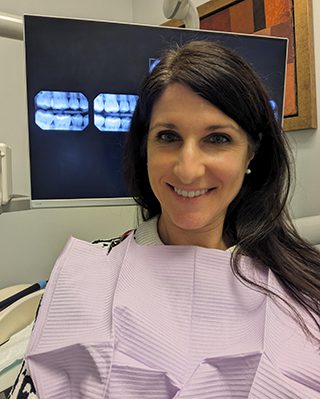The Heart Healthy Tips Doctors Follow
Heart health experts from NewYork-Presbyterian share simple everyday things they do to take care of their heart.

Looking for ways to protect your heart? Why not ask heart health experts? In honor of American Heart Month, Health Matters asked six NewYork-Presbyterian physicians for easy heart tips they follow themselves. Learn from the experts the simple things you can do each day to keep your heart in check.

Stay Hydrated With Water
Drink water, the best drink for a healthy heart. Staying hydrated helps the heart pump blood through the vessels. I start the day with a tall glass of water and continue to drink a glass of water in between and with each meal. Aim for two to three liters of water a day.
— Dr. Susana Ayyanathan, director of inpatient cardiology, NewYork-Presbyterian Queens

Eat More Salad
Substitute four to five meals a week with a healthy salad. There are multiple cardiovascular benefits to salads, which are rich in vitamins, minerals, and fiber. Salads can help decrease high blood pressure, lower cholesterol levels, and boost immunity. I avoid heavy salad dressings and instead aim for lower calorie choices like olive oil and vinegar. In addition to a well-balanced diet that may include fish and vegetables, salads are a great way to help decrease your risk of heart disease.
— Dr. Sandhya K. Balaram, chief of the Department of Cardiothoracic Surgery, NewYork-Presbyterian Brooklyn Hospital

Take More Walks
Walking can provide numerous health and cognitive benefits, like reduced risk of serious disease; improved blood pressure, blood sugar, cholesterol, and memory; and increased energy, mood, and stamina, to name just a few. For the best heart benefit, I walk briskly like someone is chasing you or to the point where you can’t walk and talk comfortably.
It can be easy to incorporate into your schedule. Consider arriving at work 30 minutes early to walk or using part of your lunch break for a walk to get a mid-day pick me up. It will give your heart and brain a boost.
— Dr. Ainat Beniaminovitz, cardiologist, NewYork-Presbyterian/Columbia University Irving Medical Center

Take Care of Your Oral Health
Schedule your next dentist appointment, and brush and floss daily. There is evidence that people with gum disease have increased risk of heart attack and stroke, so it’s important to take care of your teeth and see your dentist for a cleaning and evaluation every six months, which is what I aim to do.
It is particularly important for patients who have a history of heart valve replacements to prevent dental infections, as these infections have the potential to infect the prosthetic heart valves.
— Dr. Stephanie Feldman, director of cardio-oncology, NewYork-Presbyterian/Weill Cornell Medical Center

Stretch and Exercise
Set aside a few minutes in the morning for stretching and light exercise. You could do some core work, like holding a plank for 30 seconds to a minute. I stretch in the morning to relax, help my body stay limber and to prepare for the day. Even just a few minutes of exercise goes a long way.
— Dr. Isaac George, surgical director of structural heart, NewYork-Presbyterian

Be Active with Friends and Family
Make heart-healthy activities a family affair. Plan a walk, hike or a run with your kids, partner, friends, and pets. I love to hike, ski, and spend time outdoors with my family and friends. If you are all looking forward to an activity together, there’s a greater chance you’ll make time for it and enjoy yourselves, all while taking care of your heart.
— Dr. William Prabhu, associate director of the cardiac catheterization lab, NewYork-Presbyterian Hudson Valley Hospital
